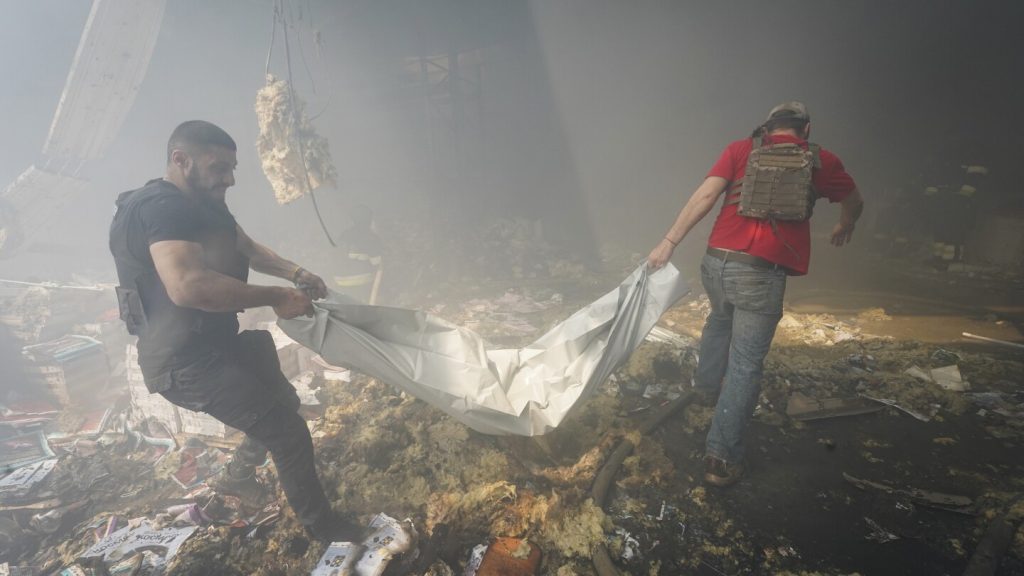The article reports on a nighttime Russian attack that destroyed trains and tracks in Ukraine’s northeastern Kharkiv region, as part of a powerful new offensive by the Kremlin. The strike also damaged buildings, but no injuries were reported. Over 11,000 people have been evacuated from the Kharkiv region since Russia launched the offensive on May 10, with plans to evacuate 123 orphans and children living without their parents in the area. Russian President Vladimir Putin has stated that the army is trying to create a buffer zone in Kharkiv to prevent Ukrainian cross-border attacks.
The ongoing conflict in Ukraine is reaching a critical point as the new Russian offensive is putting pressure on Ukraine’s already depleted ranks, exhausted by years of war. The destruction of the train network further strains the Ukrainian army, which is already stretched thin. Western aid, especially air defense systems to protect the power grid, is not arriving quickly enough, and restrictions on the use of long-range weapons prevent Ukraine from effectively striking targets on Russian soil, allowing Moscow to assemble troops for cross-border attacks.
Ukrainian President Volodymyr Zelenskyy has voiced concerns about the shortage of air defense systems and long-range capabilities, which have made it difficult to prevent Russian attacks on Ukrainian territory. While the Ukrainian military claims to have stopped the Russian advance in the north of the Kharkiv region and is conducting counter-offensive operations, a troop build-up in the Sumy and Chernihiv regions is ongoing, with daily air and artillery strikes reported. The recent strike on Kharkiv using S-300 missiles targeted a printing company, destroying about 50,000 books and reducing Ukraine’s book-printing capacity.
The situation in Ukraine highlights the challenges faced by the country in defending itself against a larger and more powerful adversary like Russia. With limitations on Western aid and restrictions on the use of certain weapons, Ukraine is struggling to protect its territory and infrastructure from targeted attacks. The ongoing conflict in the Kharkiv region, as well as incursions in other areas, underscores the urgent need for international support and a coordinated response to prevent further escalation of violence. As the conflict continues, the toll on civilian lives and infrastructure is mounting, emphasizing the need for a swift resolution to the crisis in Ukraine.


